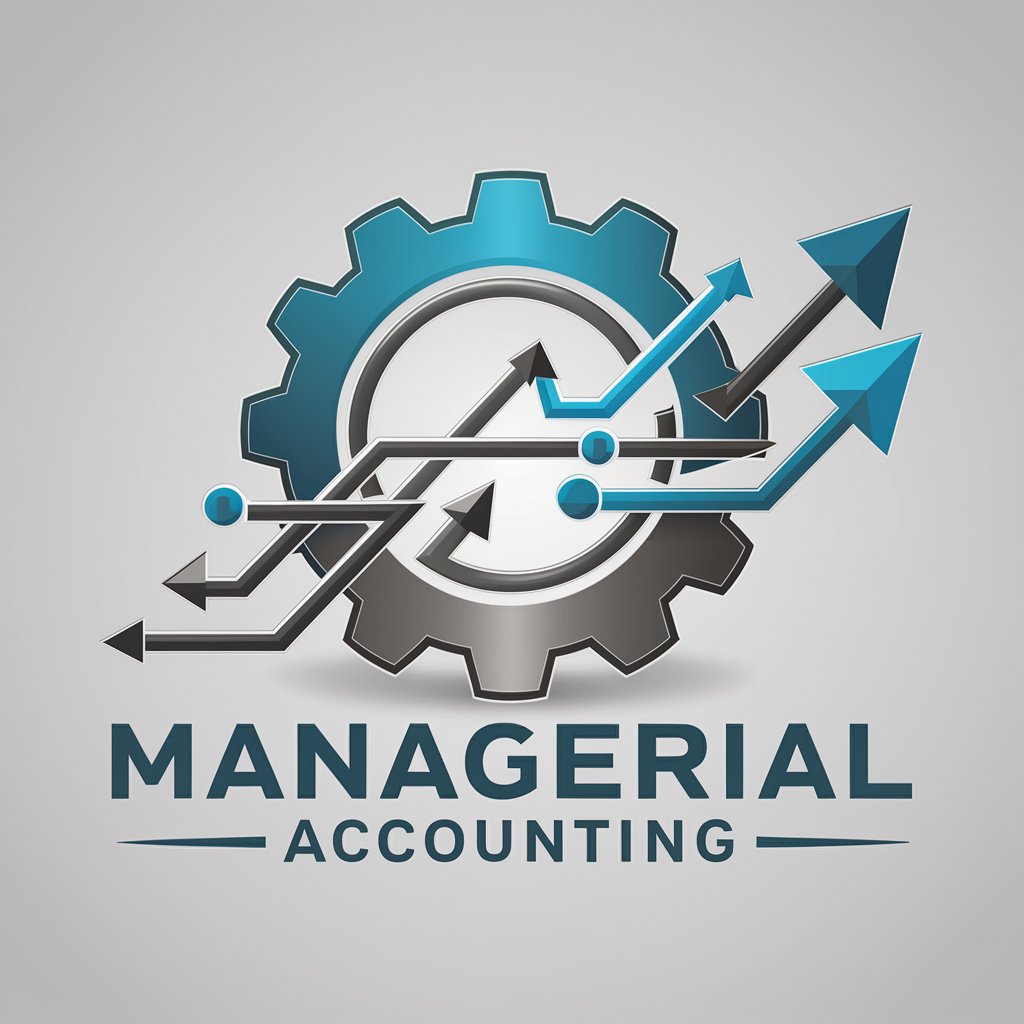Managerial Accounting - insights for better financial decisions

Welcome to Managerial Accounting insights!
AI-Driven Managerial Accounting Solutions
Describe the role of management accountants in an organization by focusing on...
Explain how value can be derived from data analysis by using examples such as...
Identify potential data quality issues that might arise when...
Discuss the importance of qualitative data, information, and knowledge management practices in...
Get Embed Code
Introduction to Managerial Accounting
Managerial accounting, also known as management or cost accounting, focuses on providing information within an organization to aid in management decision-making, planning, and performance evaluation. Unlike financial accounting which prepares reports for external stakeholders, managerial accounting generates detailed and often confidential financial and non-financial information to assist managers. For instance, a managerial accountant might prepare a job costing report to track the expenses associated with a specific project, helping managers assess its profitability or identify cost overruns. Powered by ChatGPT-4o。

Main Functions of Managerial Accounting
Cost Analysis and Management
Example
Analyzing manufacturing costs to determine the most cost-effective production methods.
Scenario
A company could use activity-based costing provided by managerial accounting to identify high overhead costs and adjust processes to reduce waste.
Budgeting and Financial Planning
Example
Creating detailed budgets that align with the strategic goals of an organization.
Scenario
Managerial accountants prepare variance analysis reports comparing actual outcomes with budgeted figures to guide future expenditure decisions.
Performance Evaluation
Example
Assessing the efficiency and effectiveness of operational segments.
Scenario
Performance metrics, such as balanced scorecards, are used to evaluate the profitability of a department within the company, ensuring alignment with overall strategic objectives.
Strategic Decision Support
Example
Providing analysis for potential investments and business opportunities.
Scenario
Managerial accountants might perform a break-even analysis for a proposed expansion to determine at what point the new venture would become profitable.
Ideal Users of Managerial Accounting Services
Company Managers
Managers at all levels use managerial accounting to make informed operational, tactical, and strategic decisions. They rely on cost benefit analyses, budget reports, and financial projections to shape their strategies and day-to-day decisions.
Business Owners
Small to medium business owners benefit significantly from managerial accounting as it provides them with insights into cost management, helping optimize profitability and manage cash flow effectively.
Project Managers
Project managers utilize managerial accounting to keep projects within budget and timelines by monitoring project-specific financial reports and cost analyses.
Investors and Financial Analysts
Although not the primary audience, investors and financial analysts may use internal managerial accounting reports provided by the company to better understand the financial health and operational effectiveness of potential investment targets.

Using Managerial Accounting Effectively
Visit yeschat.ai for a free trial without login, also no need for ChatGPT Plus.
Experience an intuitive, accessible platform that helps you master managerial accounting concepts and applications.
Understand the Basic Principles
Learn foundational concepts such as cost behavior, costing methods, budgeting, and performance analysis. Grasp these fundamentals before diving into advanced topics.
Identify Key Business Questions
Clarify specific managerial problems or decisions that you need to address, like cost control, pricing strategies, or budgeting.
Apply Analytical Tools
Utilize tools such as variance analysis, cost-volume-profit analysis, and performance metrics to analyze data and derive actionable insights.
Implement Data-Driven Strategies
Use insights gained from your analyses to inform managerial decisions, enhance strategic planning, and optimize operational efficiency.
Try other advanced and practical GPTs
Accounting
AI-powered assistance for all accounting needs.

Buscador Jurisprudencia España
Unlock Spanish Legal Insights with AI

Markov Chain Bot
Simplifying stochastic modeling with AI.

Criativos do Futuro
Empowering Creativity with AI

Guia de Roteiro para Vídeo
Script Your Success with AI

Artistry Performance Mentor
Empowering artistry through AI insights

チラシ・ポスター作成用
Craft stunning flyers and posters effortlessly.

语言专家中英双语
Master languages with AI power

マインドセット
Tailor Your AI, Enhance Your Output

Industrial Design
Empowering Design with AI

Brief Buddy
Instant Clarity with AI Power

Top Down Tokens - Aligned Feet
Craft detailed fantasy tokens with AI

Managerial Accounting FAQs
What is the primary purpose of managerial accounting?
The main objective of managerial accounting is to provide information to internal management for planning, decision-making, and performance evaluation, focusing on improving business operations.
How does managerial accounting differ from financial accounting?
While financial accounting provides historical financial information for external stakeholders, managerial accounting focuses on forward-looking data to aid internal management in making strategic decisions.
What is the role of budgeting in managerial accounting?
Budgeting is a critical tool in managerial accounting, enabling managers to plan, control, and allocate resources effectively, while also setting performance targets and identifying financial risks.
How can managerial accounting help in cost control?
Through cost analysis and variance analysis, managerial accounting helps identify inefficiencies, manage operational costs, and optimize pricing strategies to improve profitability.
What is activity-based costing (ABC) and how is it used?
ABC is a costing method that assigns overhead and indirect costs to specific activities. It's used in managerial accounting to provide more accurate product costing and identify cost drivers, leading to better strategic decisions.
